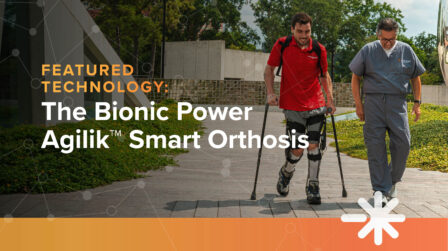
Federally-Funded Research

Current Projects
Patient-Centered Measurement of Mobility Outcomes in Lower Limb Orthosis Users
The objective of this study is to advance the measurement of orthotic outcomes by comparing and contrasting different types of Patient Reported Outcomes (PRO) instruments designed to measure mobility in lower limb orthosis users.
Sonomyographic Upper Limb Prosthetics
The objective of this study is to develop and clinically evaluate a prototype prosthetic control system that uses imaging to sense residual muscle activity, rather than electromyography.
A Patient-Driven Rehabilitation System to Improve Upper Limb Amputee Outcomes
In this study, we hope to empower the eventual user of a myoelectric prosthesis by enabling them to start learning how to contract their residual muscles before their prosthesis is fabricated during the very time period in which training is the most valuable.
Fall-Related Health Outcomes in Lower Limb Prosthesis Users
A Pragmatic Clinical Trial to Assess Effectiveness of Microprocessor-Controlled Prosthetic Knees: The purpose of this study is to determine if and how microprocessor and non-microprocessor-controlled prosthetic knee technologies influence fall-related health outcomes in limited community ambulators.
Exploring the Impact of Microprocessor-Controlled Knees on Prosthesis Automaticity and Overall Health
The purpose of this study is to create a new patient report assessment of walking automaticity among prosthesis users and to use this instrument and several others to assess microprocessor knee technology.
Clinical Outcomes Associated with at Home Use of Passive MPKs vs. Two Different Powered Prosthetic Knees by K4-Level Individuals with Transfemoral Amputations
The purpose of this study is to determine longitudinal benefits associated with powered prosthetic knees compared to passive microprocessor knee technology in K4 level ambulators.

Latest Updates
Subscribe to stay up-to-date on our latest posts.


